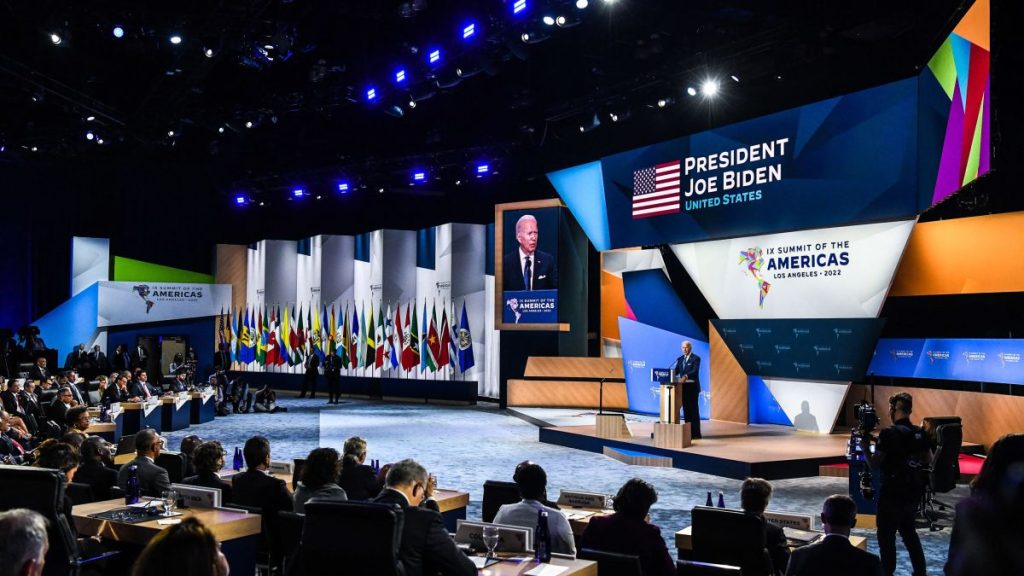The White House wants to tackle migration again. But the key players were nowhere to be found at the Summit of Americas

Guatemala, El Salvador and Honduras play an oversize role in the issue of migration. Collectively known as the Northern Triangle, they are countries of origin for tens of thousands of migrants, and a key transit point for even more travelers who approach the southern border with the hope of re-locating to the United States. The Biden administration has focused heavily on these three countries. Vice President Kamala Harris visited Guatemala a year ago and then this year she traveled to Honduras to congratulate newly elected President Xiomara Castro. Despite the overtures, President Castro and her two counterparts, President Alejandro Giammattei of Guatemala and Nayib Bukele of El Salvador, skipped the summit in Los Angeles this week.Their absence were evident on Tuesday, when Harris unveiled a pledge worth $3.2 billion of private investments to address “the root causes of migration” in the Northern Triangle. In her speech, the Vice President spoke directly to the private sector and civil society in the Northern Triangle, touting the opportunities in job creation and a stronger partnership with US-based companies.China’s growing influence in the region has helped the three countries move away from Washington. Late last year, Bukele announced plans to build a new national stadium in El Salvador paid by the Chinese government. Guatemala meanwhile is mulling switching its diplomatic recognition of Taiwan to Beijing in exchange for China’s Belt and Road investment program.As leaders hob-nobbed in Los Angeles this week, at least 3,000 migrants — mostly from Venezuela, which has also been excluded from the summit — crossed the Guatemala-Mexico border heading north toward the US. The US and other countries in attendance are expected to issue a joint declaration on Friday that will outline a cooperative approach to migration, which will include strengthened protection for migrants, support for countries hosting large refugee populations and tackle human smuggling networks. But with key leaders not in attendance, including Mexico’s President Andrés Manuel López Obrador, it remains to be seen if these commitments will have any potency.




